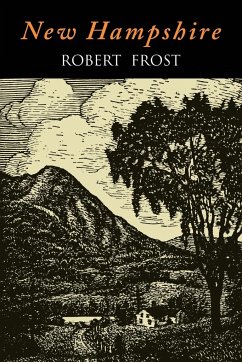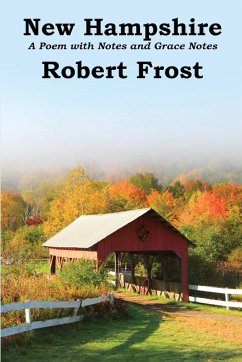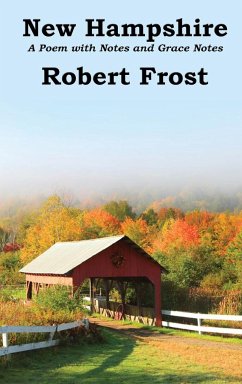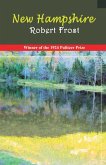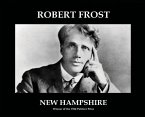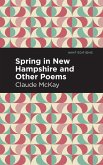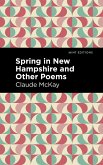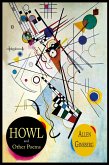2019 Reprint of 1923 Edition. Full facsimile of the original edition, not reproduced with Optical Recognition software. Known for his realistic depictions of rural life and his command of American colloquial speech, Frost frequently wrote about settings from rural life in New England in the early twentieth century, using them to examine complex social and philosophical themes. "It becomes more and more apparent that Robert Frost is New England's most authentic poet, and by authentic poet we mean the most sincere, foursquare and forthright who has tried to lay a finger on the slow and positive pulse of the New England north of Boston and sound the secret of its heart… A good deal of a philosopher, Mr. Frost digs down into the heart of New Hampshire life and deracinates with extreme cleverness and subtlety its changing aspects." McCord's review of Frost's "New Hampshire". The poet/critic Randall Jarrell often praised Frost's poetry and wrote, "Robert Frost, along with Stevens and Eliot, seems to me the greatest of the American poets of this century. Frost's virtues are extraordinary. No other living poet has written so well about the actions of ordinary men; his wonderful dramatic monologues or dramatic scenes come out of a knowledge of people that few poets have had, and they are written in a verse that uses, sometimes with absolute mastery, the rhythms of actual speech." He also praised "Frost's seriousness and honesty," stating that Frost was particularly skilled at representing a wide range of human experience in his poems. Jarrell, Randall. "Fifty Years of American Poetry." Frost one the Pulitzer Prize for this collection of poetry, one of four he was to earn during his lifetime. It contains some of his most enduring and best-known poems, including "Nothing Gold Can Stay," "Fire and Ice," "The Need of Being Versed in Country Things," and "Stopping by Woods on a Snowy Evening." Included in this edition are the original woodcut illustrations of rural scenes, done in the Arts and Crafts style by J. J. Lankes.
Hinweis: Dieser Artikel kann nur an eine deutsche Lieferadresse ausgeliefert werden.
Hinweis: Dieser Artikel kann nur an eine deutsche Lieferadresse ausgeliefert werden.

